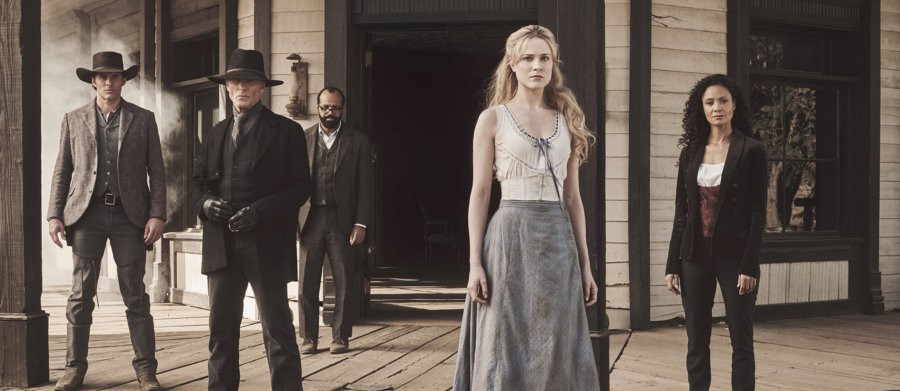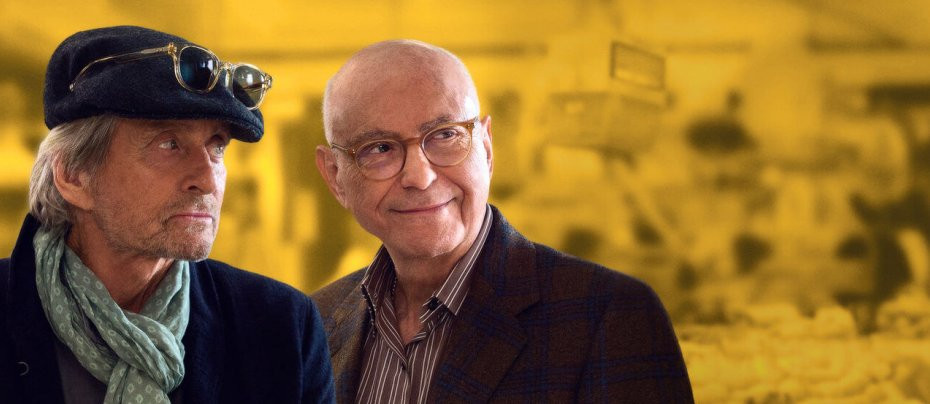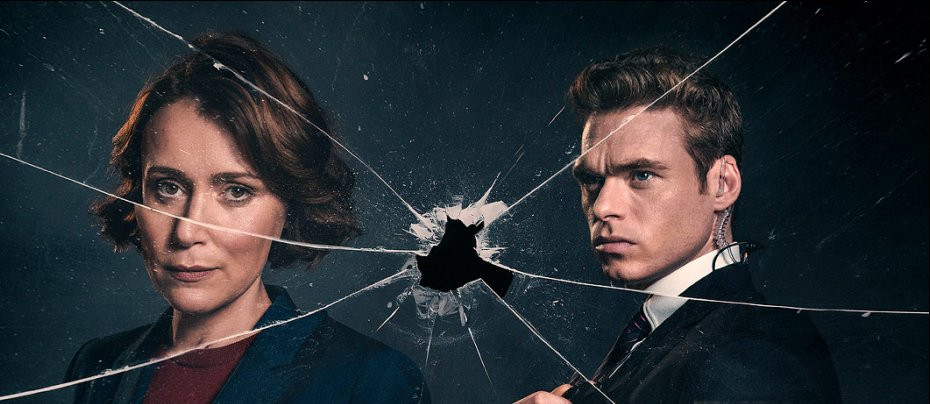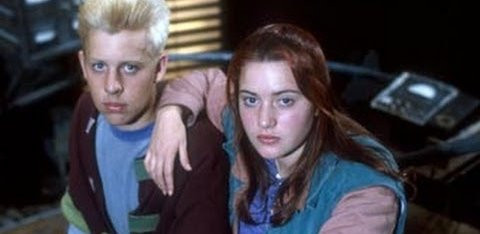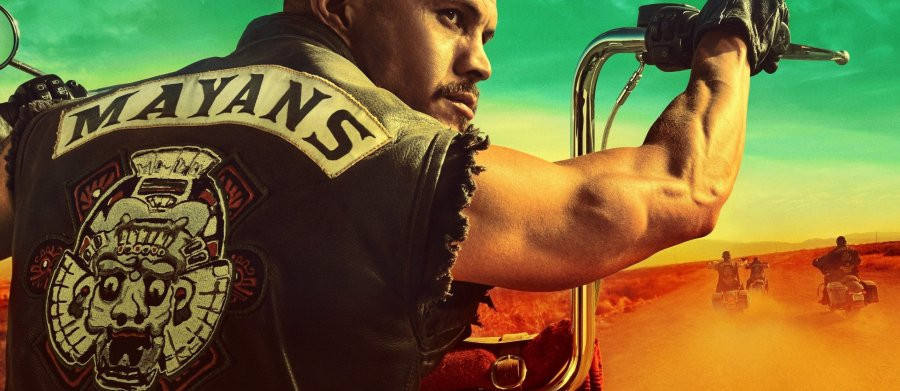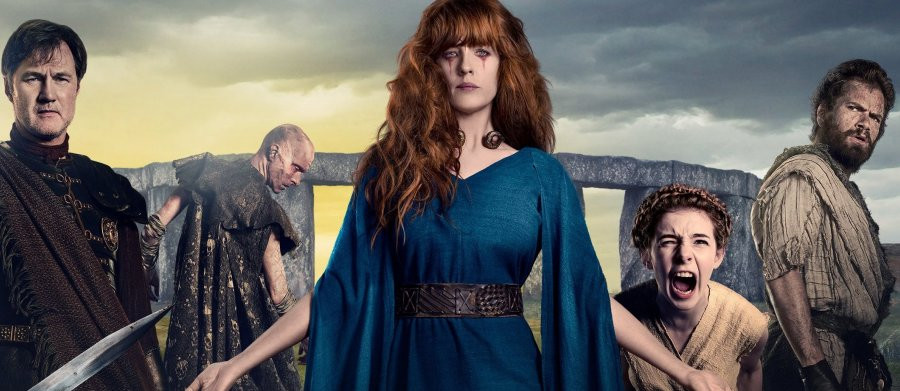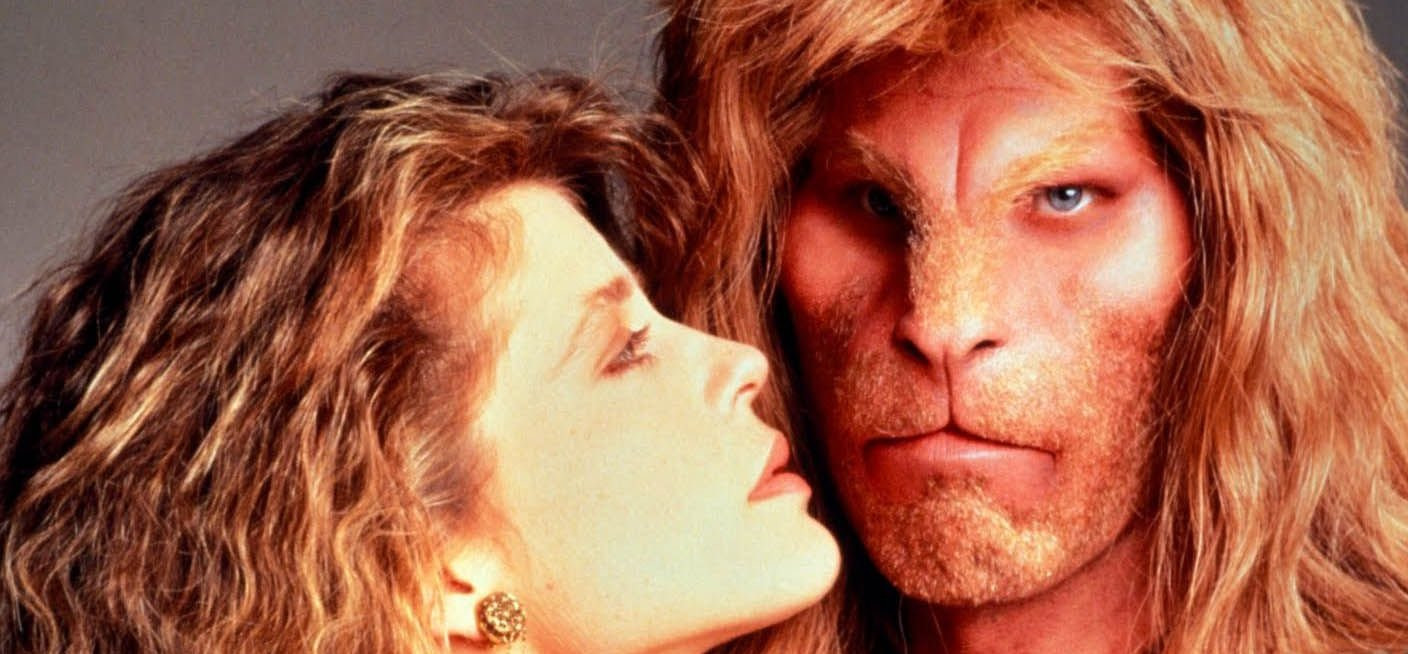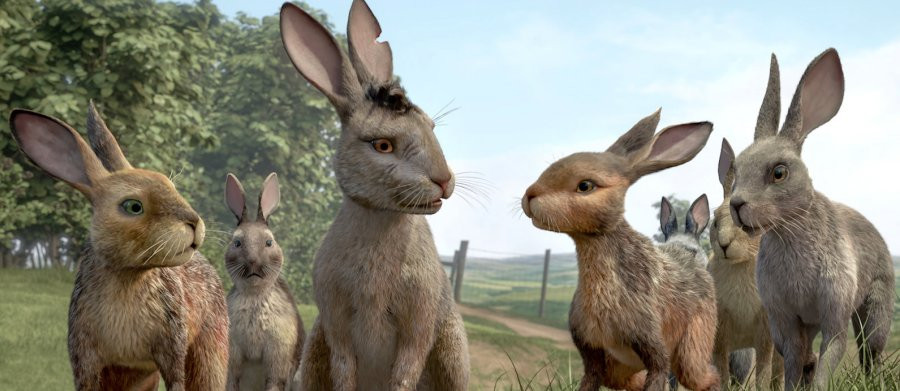
Troy: Fall of a City
2018 - Uk UsaReview – John Winterson Richards
Homer's 'Iliad,' the story of a tense few days in the legendary ten-year Trojan War, is the first great literary work of Western civilisation, its first great Epic poem and, arguably, since it is usually read these days in prose translation, it’s the first great novel as well. It served as the defining text of Western culture until replaced by the Bible, and educated Greeks and Romans quoted it in much the same way.
Indeed, it could be argued that Western literature started at the top and has been working its way down ever since, because, judged purely as writing, 'The Iliad' has rarely been equalled and never been surpassed. It is a masterclass in all the elements necessary for a great story: memorable, well drawn characters; quotable dialogue; a well structured plot, clear and easy to follow but full of suspense and reversals to keep the reader alert; authentic, well paced action scenes; and a textured sense of time and place established very quickly.
It plays like a film in the mind as one reads it.
So it is strange that it has not been adapted more often, and none of the adaptations to date has been satisfactory.
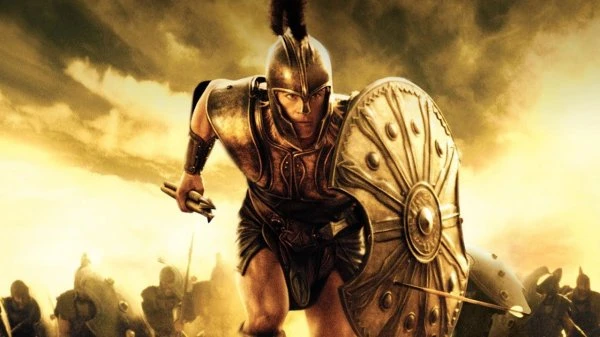
Wolfgang Petersen's feature film 'Troy'is the best attempt so far. A visual masterpiece with high production values ostentatiously on display, it still manages to fall flat. Blame lies not with the director or the technical departments or the very strong cast - most of whom play their parts well - but with the script. This was written by David Benioff of Game of Thrones fame/infamy.
The film version of 'Troy,' like Game of Thrones, shows both his great strength and his great weakness as a writer. HBO were warned. His great strength is his ability to write a truly outstanding dialogue scene. His great weakness is his poor grasp of story. He tried to make 'Troy' a love story, with the Trojan beta male Paris and the Greek alpha female Helen (of Sparta, then of Troy) at the heart. He would have done better to stick to his source material.

Old Homer knew his craft. He understood that the juvenile leads were not his strongest characters, and that it was difficult to make them sympathetic: after all, their selfish and adulterous elopement triggers the War that leaves a lot of innocent people dead. In 'The Iliad,' Helen in shown regretting her choice, and in Homer's sequel, 'The Odyssey,' she makes a guest appearance in which he she is back with her husband, Menelaus, reconciled and apparently living happily together.
It is therefore an ironic postscript to 'The Iliad' that all the people killed in the Trojan War died for nothing.
The real human interest in 'The Iliad' is in the interplay of the alpha male heroes - including Achilles, Agamemnon, Odysseus, Menelaus, and the Trojan Prince Hector - and the callous Olympians who are portrayed as playing with their fates, and who come across as even more selfish and flighty than Helen.

So the feature film left open the opportunity for someone else to make a more faithful adaptation of 'The Iliad,' complete with the irony and the more complex interrelationships. That is what the BBC could and should have done with Troy: Fall of a City.
They did the complete opposite. They made the same basic mistake as the movie version, trying to make it a love story between two basically unlovely people - and then added a few additional mistakes of their own.
While it may originally have been part of a longer work or series of works, much of what makes 'The Iliad' as it has come down to us so compelling is the sense of claustrophobia and urgency generated by its concentration on a relatively small period within a much bigger story. Troy: Fall of a City tries to tell that bigger story, even including ancient legends not found in Homer, notably the rather odd tale of how Paris was raised as a shepherd. They add nothing of value.
As a result, the "miniseries" fails to tell the short, intense story properly, but also lacks the scope to tell the wider story. So it fails to tell either well and seems to give up, wandering off into dull subplots of Palace intrigues. The viewer who knows and loves the original story might be forgiven for shouting at the television screen "Just get on with it!"
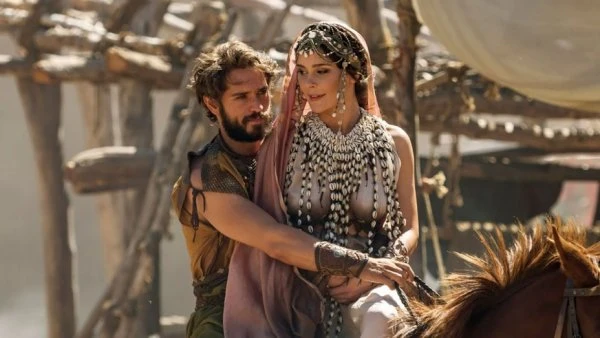
Again, it is not the actors' fault. The cast is solidly professional, if not particularly distinguished. Bella Dayne, a former Miss Germany, is physically attractive as Helen, but is this "the face that launched a thousand ships and burnt the topless towers of Ilium"? Well, the face maybe, but the point is that there had to have been more to the historical Helen, if there was one, than mere good looks for men to start wars over her. Like the last Cleopatra, who definitely did start wars, there would have to have been something compelling about her, and there is nothing here.

Among the supporting cast, Joseph Mawle, one of those actors who deserves to be better known, gives us a nicely world weary Odysseus with an authentic ruthless streak. Those fine players David Threlfall and Frances O'Connor had great potential as Priam and Hecuba only to be sidelined in favour of Louis Hunter's annoying Paris. Jonas Armstrong, from the BBC Robin Hood, plays the cuckold Menelaus, a character for whom Homer shows a lot of respect, as a straight villain. Curiously, the more obvious candidate for villain of 'The Iliad,' Agamemnon, is given unusual shade and depth by Johnny Harris. He presents us with a man who does horrible things but is not necessarily a horrible man. If the script had given Harris more room to explore, and perhaps even resolve, his character's conflicts, it might have been a truly great performance that saved the whole production. He really is that good.
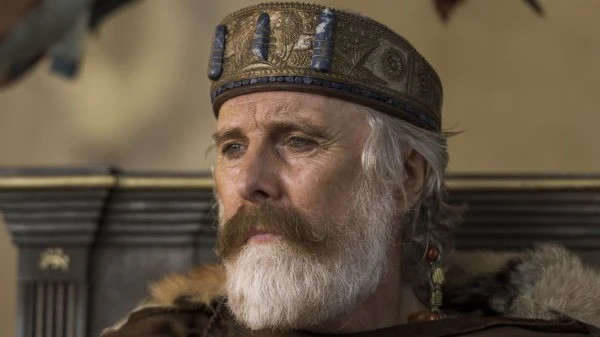
David Gyasi plays Achilles as the formidable, egotistical borderline psychopath found in Homer. There is much scholarly debate about whether his relationship with Patroclus was paederastic or Platonic or something in between. No prizes for guessing which way the BBC goes.
In spite of the irritating pornographic interludes, Gyasi's basic interpretation of the driven hero works well on its own terms, so it is regrettable that the controversy over the BBC's "colour blind casting" policy cannot be avoided. There was much debate about it at the time, which there might not have been if the project had been more successful overall.

Briefly, there were a lot of black people living around the Eastern Mediterranean during the pre-Classical period, just as the odd fair haired proto-Celt wandered down from the North, so a black actor playing Achilles is no more inaccurate than a blue eyed Heracles like Kevin Sorbo. If we want to be historical purists about it - and there really is no reason why we should - such a thing is improbable but by no means impossible.
The objection to "colour blind casting" is therefore dramatic rather than historical. It intrudes on the viewer's suspension of disbelief, especially when actors of different ethnicities are scattered randomly through the cast without reference to the different nationalities, localities, and family relationships of their respective characters. When that becomes too obvious, the viewer realises he is being taught a heavy handed political lesson and switches off. That is what they did, in droves, with Troy: Fall of a City. It was a ratings disaster.
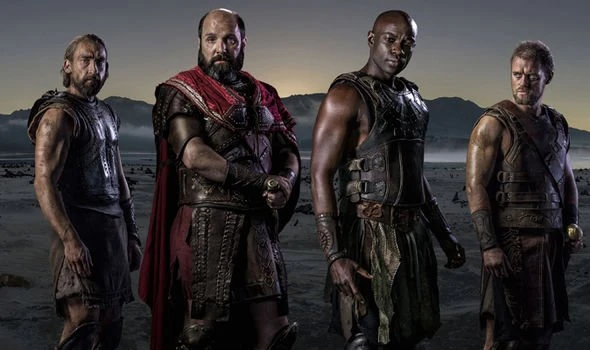
It is ironic that much of the filming was done in South Africa, not a place renowned for colour blindness. One of the few pleasures watching the finished product was spotting familiar faces, such as Lise Slabber and Hakeem Kae-Kazim, from Black Sails, which was also filmed there.
In fairness, the Cape Provinces stands in surprisingly well for Anatolia and the Aegean. The local technical departments, no doubt including many veterans of said Black Sails, are almost faultless, deservedly building on South Africa's reputation as a good place to film.
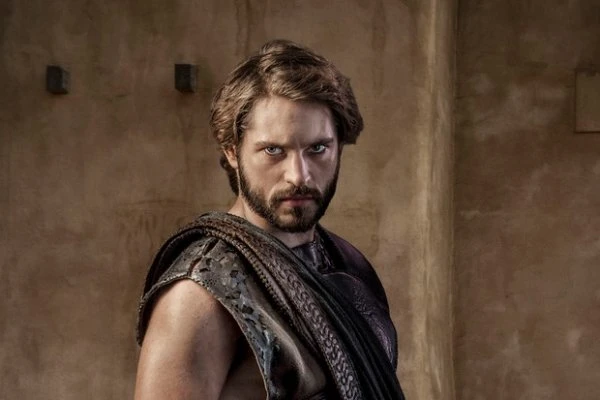
What is missing is a sense of grandeur. When Troy is mentioned, we expect to see those topless towers. This is where Petersen scored well. As it happens, just the sort of visual style that was needed was on display in the BBC's previous foray into Greek myth, Atlantis. Alas, it seems all the skill and expertise built up during the making of Atlantisseems to have evaporated in the time between its premature cancellation and the filming of Troy: Fall of a City.
The pretext for axing Atlantis was that resources were required for other projects. Did this mean Troy: Fall of a City? If so, it was a sore disappointment and the resources would have been better kept in Atlantis.
Seen this show? How do you rate it?
Seen this show? How do you rate it?
Published on February 26th, 2020. Written by John Winterson Richards for Television Heaven.


